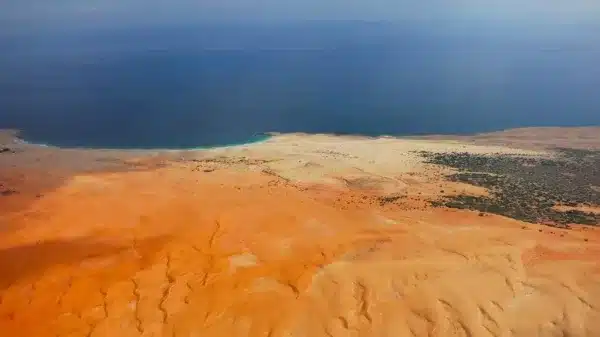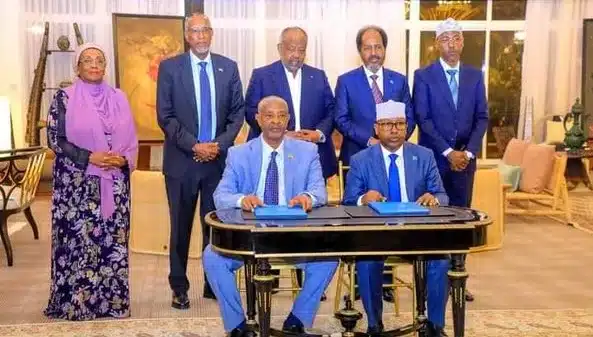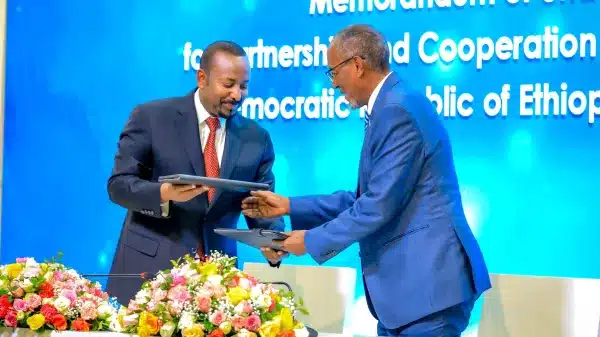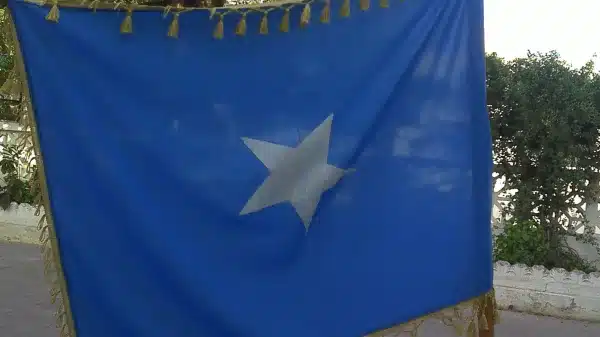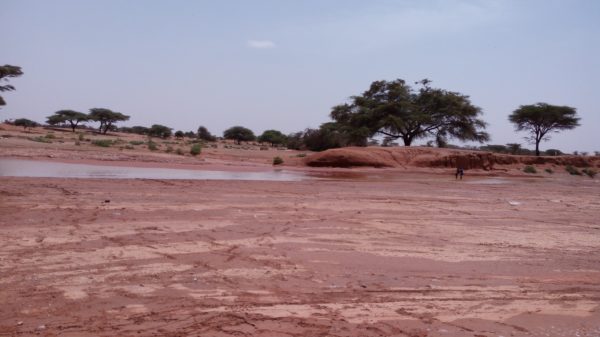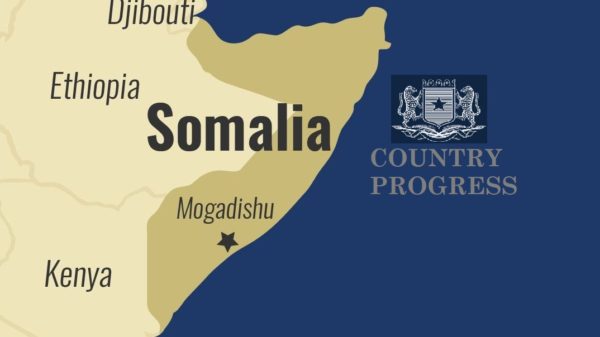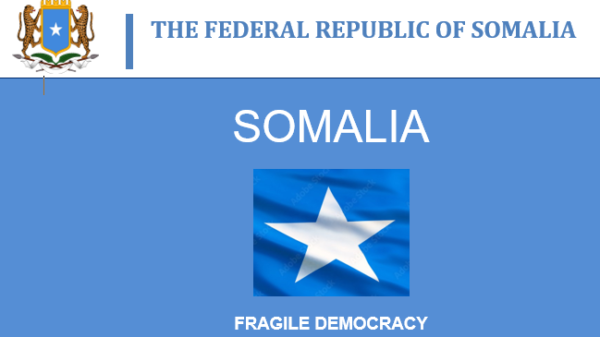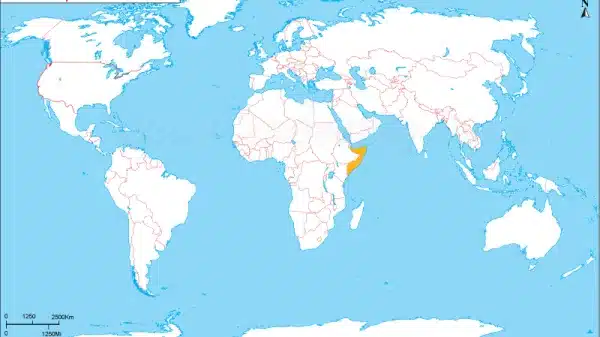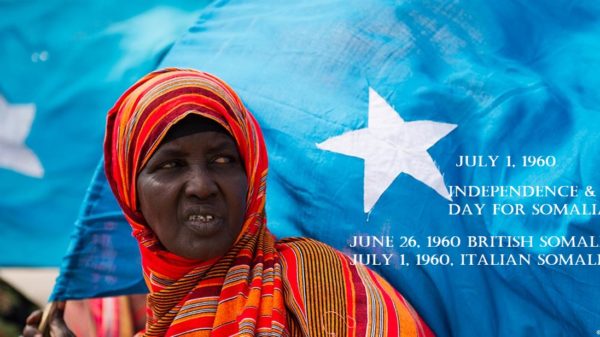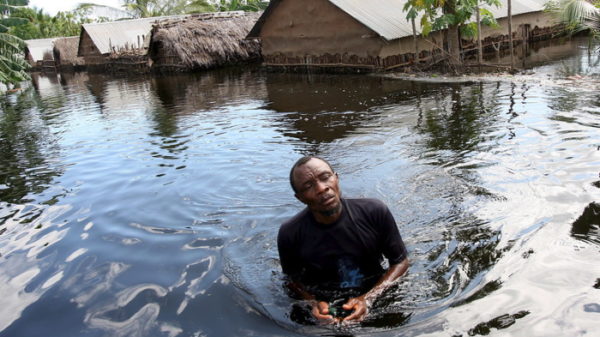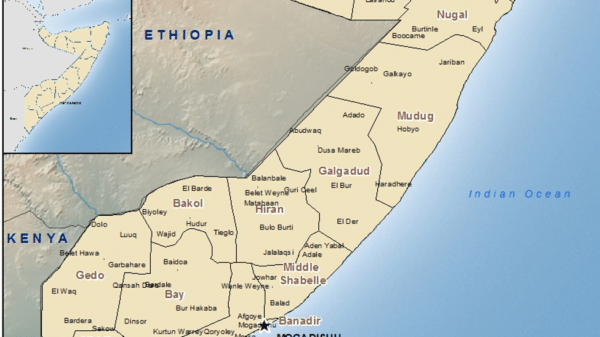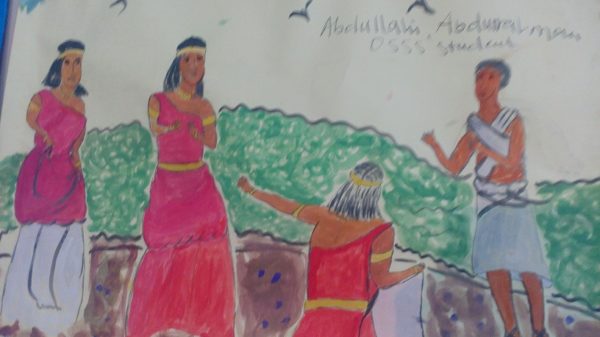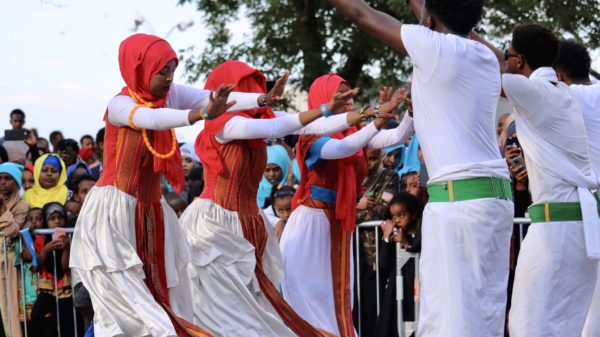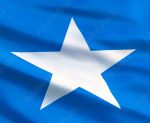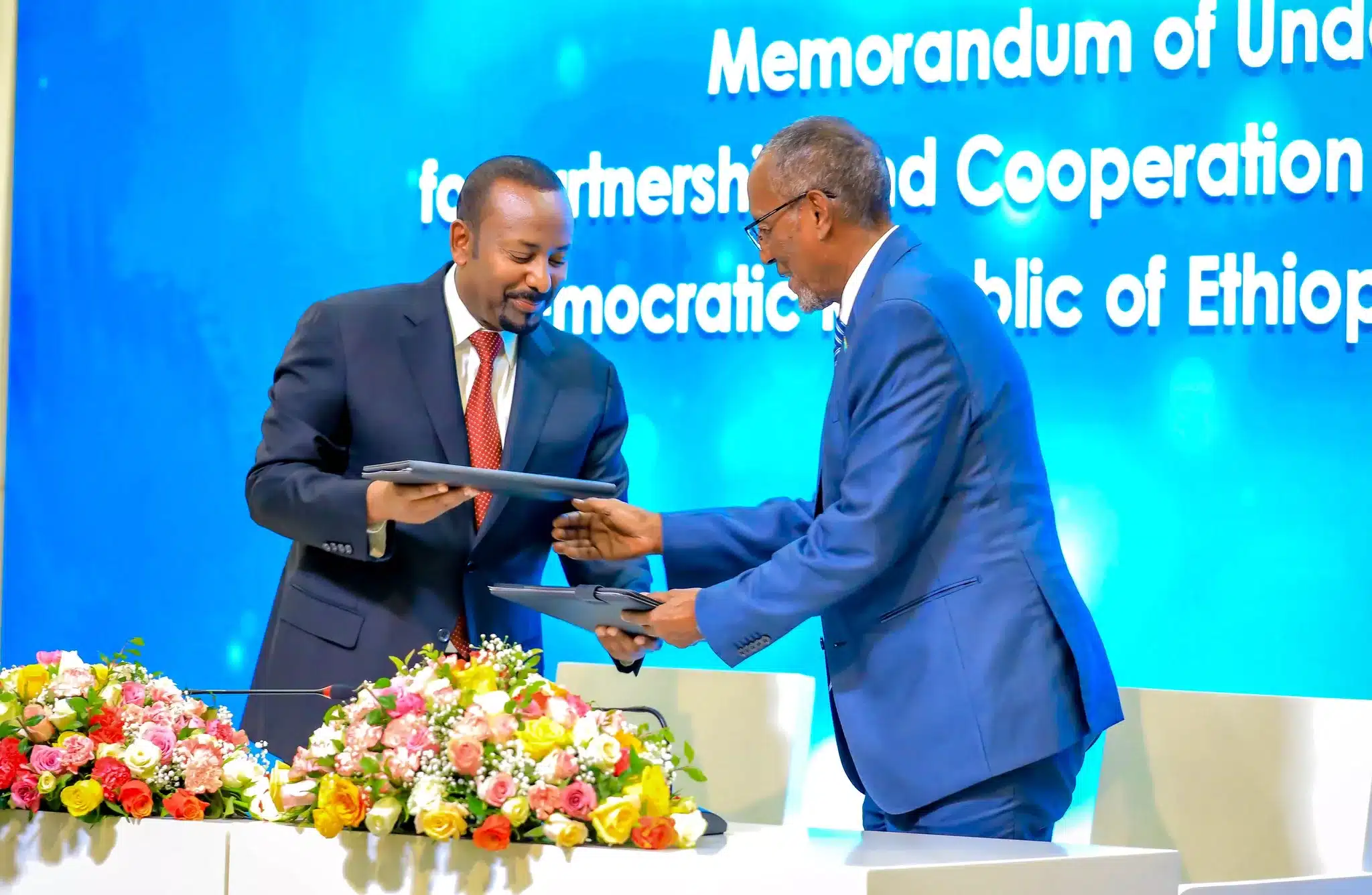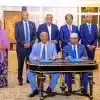The signing of a controversial Memorandum of Understanding (MoU) between Ethiopia and the Somalia’s breakaway region of Somaliland has ignited a new crisis in the long and complex relationship between the two countries. The agreement, which aims to give Ethiopia access to a sea port in return for recognition of Somaliland, has been met with strong opposition from the Somali government, citing a violation of unity, sovereignty, and territorial integrity. This article explores the background of the crisis, the responses from both sides, and the international reaction.
Ethiopia’s desire for sea port access stems from its status as a landlocked country since Eritrea gained independence in 1993. The recent Memorandum of Understanding (MoU) signed between Ethiopia and Somaliland has been praised by Ethiopian Prime Minister Abiy Ahmed for its historic and strategic significance in securing sea access and diversifying port options. The Ethiopian government also highlights the importance of the MoU in promoting regional integration and cooperation based on mutual interests, according to a press statement issues by the Office of the Prime Minister of Ethiopia on January 1, 2024.
During the signing ceremony, Prime Minister Ahmed referred to the MoU as historic and emphasized its role in allowing Ethiopia to secure access to the sea. He believes that this agreement will enhance Ethiopia’s role in maintaining regional peace and security, and strengthen their security, economic, and political partnerships.
The MoU, which has not been publicized yet, establishes a new Partnership and Cooperation between the Federal Democratic Republic of Ethiopia and Somaliland. Despite disregard for the unity, sovereignty, and territorial integrity of the Somali Federal Republic, the agreement aims to give Ethiopia secure access to the sea. In return, Somaliland will lease 20 KM of sea to Ethiopia and receive recognition from Ethiopia, along with promised support for global recognition of Somaliland through political and diplomatic means.
“The Federal Republic of Ethiopia is set to become the first African nation to officially recognize the Republic of Somaliland. Additionally, the Republic of Somaliland will lease 20 KM of sea to Ethiopia. Furthermore, Ethiopia will utilize the Berbera Port.” Somaliland President Muse Bihi Abdi said, during the singing of the MoU with Prime Minister Aby Ahmed in Addis Ababa Ethiopia on January 1, 2024.
However, the MoU has caused a diplomatic crisis between Ethiopia and the Somali Federal Republic. The Somali government strongly opposes the agreement, stating that it violates their unity, sovereignty, and territorial integrity. Somali President Hassan Sheikh Mohamud criticized Ethiopia’s actions, calling it a diplomatic miscalculation and suggesting that it could lead to the radicalization of more individuals by extremist groups like Al-Shabaab.
In response, the Somali government has recalled its ambassador from Ethiopia and plans to address the issue through global diplomatic institutions. They consider the MoU “null and void” and have requested diplomatic support and international intervention to uphold international law and order.
Somali President Hassan Sheikh Mohamud expressed disappointment with Ethiopia’s stance, calling it a diplomatic miscalculation and emphasizing Somalia’s strength in diplomatic matters.
“We know well the consequences when Ethiopia interferes Somali affairs, we remember the Ethiopian occupation in Somalia in 2006 resulted the creation of Al-Shabaab terrorist that the entire region is struggling to contain their crisis since then. Even today, Al-Shabaab spokesman rallied around this agreement to radicalize more young people”. Said, The Somali President Hassan Sheikh Mohamud, during his address to the Somali Parliament, on January 2, 2024.
The European Union has responded to the crisis, emphasizing the importance of respecting Somalia’s unity, sovereignty, and territorial integrity for the peace and stability of the region. The EU urges all parties involved to abide by these principles as outlined in Somalia’s constitution, the Charters of the African Union, and the United Nations.
“On 1 January, Ethiopian Prime Minister Abiy Ahmed and Somaliland President Muse Bihi Abdi signed a Memorandum of Understanding on granting Ethiopia access to the sea. The European Union would like to remind the importance of respecting the unity, the sovereignty and the territorial integrity of the Federal Republic of Somalia pursuant of its constitution, the Charters of the African Union and the United Nations. This is key for the peace and stability of the entire Horn of Africa region”. Nabila Massrali, the Spokesperson of the Foreign Affairs and Security Policy issues a statement on January 2, 2024.
The United States has also responded to the crisis, emphasizing the importance of respecting Somalia’s unity, sovereignty, and territorial integrity for the peace and stability of the region.
“We join other partners in expressing our serious concern, as well, about the recent spiking tensions in the Horn of Africa. We urge all stakeholders to engage diplomatic dialogue. And, the United States recognizes the sovereignty and the territorial integrity of the Federal Republic of Somalia, within its 1964’s”. Matt Miller, Spokesperson, The US Department of State, on January 3, 2024.
In summary, Ethiopia and Somalia, two neighboring countries in the Horn of Africa, have a history marred by conflict and tension. The newly developed crisis stems from an MoU signed between Ethiopian Prime Minister Abiy Ahmed and Somaliland President Muse Bihi Abdi on January 1, 2024. The agreement seeks to grant Ethiopia access to a sea port in exchange for recognition and diplomatic support for Somaliland’s bid for global recognition. However, Somalia categorically rejects the agreement, considering it a violation of its unity and territorial integrity.
The Somali government strongly opposes the agreement, labeling it a breach of sovereignty and territorial integrity. Somali President Hassan Sheikh Mohamud expressed disappointment in Ethiopia’s stance and vowed to address the issue diplomatically, seeking support from global institutions. Furthermore, he highlighted the potential ramifications, including the radicalization of young people by Al-Shabaab.
The European Union and the United States both respond, emphasizing the importance of respecting Somalia’s unity and sovereignty in accordance with international charters and conventions. The EU stressed that such respect is crucial for peace and stability in the entire Horn of Africa region.
The historical context between Ethiopia and Somalia features a mix of conflict and mistrust. Somalia’s prolonged civil war and subsequent chaotic conditions led to accusations of support for rebel groups and territorial disputes between the two countries. Recent years have seen some improvements in the relationship, with diplomatic efforts aimed at enhancing cooperation. However, challenges and tensions regarding border security and historical grievances persist.
As the crisis deepens, ongoing dialogue, cooperation, and commitment will be necessary to find a lasting resolution and establish a harmonious relationship between Ethiopia and Somalia.




